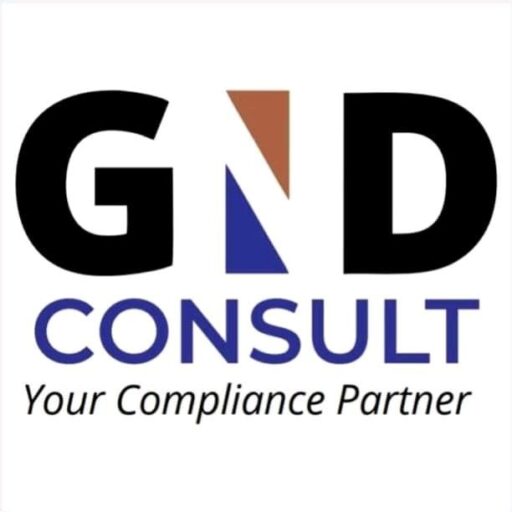AN INDEPTH INSIGHT INTO THE PUBLIC BENEFITS ORGANIZATIONS (PBOs) ACT,2013 (Series II)
AN INDEPTH INSIGHT INTO THE PUBLIC BENEFITS ORGANIZATIONS (PBOs) ACT,2013 (Series II)
The Public Benefit Organizations (PBO) Act, enacted back in 2013, comes into effect Tuesday, May 14, 2024 via Legal Notice No. 78 repealing the NGO Act of 1990.
In this second part of a running series, GND Consult puts in-depth focus on some of the notable developments in this Act:
Government’s responsibility to public benefit organizations
The PBO Act provides that consistent with its obligation to respect the freedoms of association and assembly, it is the duty of the Government to provide an enabling environment for public benefit organizations to be established and to operate. Every organ of the government has to determine and co-ordinate the implementation of its policies and measures in a manner designed to promote, support and provide an enabling environment for public benefit organizations to perform their functions.
The Government and all public benefit organizations have to comply with the principles for effective collaboration set out in the First Schedule of this Act.
Benefits enjoyed by registered PBOs
Registered PBOs will benefit from indirect government support (through tax exemptions), direct government financing (through partnerships), preferential treatment in public procurement procedures, accessibility to information, and access to training courses offered by government institutions.
Some of the tax benefits include:
- Exemptions from income tax on income received from membership subscriptions and any donations or grants;
- Exemptions from income tax on income acquired from the active conduct of income producing activities if the income is wholly used to support the public benefit purposes for which the organization was established;
- Tax exemption on interest and dividends on investments and gains earned on assets or the sale of assets;
- Stamp duty and court fees exemptions;
- Preferential treatment for value-added tax (VAT) and customs duties relating to imported goods or services used to further their public benefit purpose;
- Special tax incentives for donations to form endowments, prudent investment policies;
- Incentives for donations; and
- Employment tax preferences.
Self-regulation
Part III of this Act provides for self-regulation, administrative and reporting obligations.
Every organization has the freedom to join in association with other organization or organizations as it may desire and to participate in forming a forum of public benefit organizations under this Act and to join and exit a forum of public benefit organizations.
An organization which is a member of a forum of public benefit organizations has the right, subject to the constitution of that forum, to participate in its lawful activities and in the election of its officials and representatives.
A federation of registered public benefit organizations is also established to be known as the National Federation of Public Benefits Organizations, which shall serve as an umbrella organization of all public benefit organizations registered under the PBO Act and the self-regulation forums of public benefit organizations recognised by the Authority.
The objectives and functions of the Federation are to provide leadership on matters of interest to the sector and for the promotion of the sector generally; promote self-regulation by the forums for self-regulation of public benefit organizations; co-ordinate the self-regulation forums registered under this Part; monitor the performance of the self-regulation forums and advise the Authority in the monitoring and enforcement of compliance by these forums and their respective public benefit organizations members with the provisions of the PBO Act, the regulations and the general code of conduct and the codes of conduct adopted by the self-regulation forums; advise the Authority generally on the development of the public benefit organizations sector; facilitate the building of the capacity of non-governmental organizations for the enhancement of the effectiveness of these organizations; and render such advice to donors and the Authority on any issue relating to the sector.
Establishment of the public benefit organizations disputes tribunal
Unlike the repealed NGOs Act which did not have an internal dispute resolution mechanism, the PBO Act establishes the Public Benefit Organizations Regulatory Disputes Tribunal (Tribunal), which has jurisdiction to hear and determine complaints arising out of breach of the PBO Act. The Tribunal has powers to hear and determine:
- appeals from the Cabinet Secretary or the Authority concerning the Federation and decisions of the Federation;
- complaints arising out of any breach of the provisions of the Act;
- any matter or appeal made to it pursuant to the provisions of the Act; and
- perform such other functions as may be conferred upon it by the Act or by any other written law being in force.
In its determination of any matter, the Tribunal may take into consideration any evidence which it considers relevant to the subject of the matter before it, notwithstanding that the evidence would not otherwise be admissible under the Evidence Act. It has powers to summon expert evidence as may be necessary for the discharge of its functions under this Act and to award the costs of any proceedings before it and to direct that costs shall be taxed in accordance with any scale prescribed for suits in the High Court or to award a specific sum as costs.
Compliance requirements
PBOs are obligated to prepare and keep proper records as well as have financial statements prepared annually by an independent auditor and to the standard acceptable to non-profit organisations.
Additionally, within six months after the close of each financial year, each PBO is required to file with the Authority a statement of its audited accounts, a certified copy of financial statements, and a report detailing the activities of the PBO during the year.
PBOs are also required to provide the Authority with details (such as names and physical, business, and residential addresses) of governing body members within one month after any election or appointment.
Any amendments to a PBO’s constitution, and basic information such as addresses, details of the founders, etc. must be notified to the Authority, within 60 days of occurrence.
The Contents of a PBO’s Constitution
The constitution of a public benefit organization that intends to register has to:
- state the following: the organization’s name; the objectives of the organization; that participation in and membership of the public benefit organization shall be voluntary; that the organization’s income and property are not distributable to any person, except as reimbursement of reasonable expenses or payment of reasonable compensation for services rendered;
- make provision for the organization to be a body corporate and have an identity and existence distinct from its members or governing body;
- ensure that the members or governing body have no rights in the property or other assets of the organization solely by virtue of their being members or the governing body;
- specify the organizational structures and mechanisms for its governance;
- provide for a governing body consisting of not less than five persons, three of whom shall not be related to each other;
- in the case of international nongovernmental organizations, specify the authorized agent, being a Kenyan citizen, retained by the organization, upon whom official notices, summonses and other process may be served;
- set out the rules for convening and conducting meetings, including quorums required for and the minutes to be kept of those meetings;
- determine the manner in which decisions are to be made;
- provide that the organization’s financial transactions shall be conducted by means of a banking account;
- determine the financial year of the organization;
- set out a procedure for changing the constitution;
- set out a procedure by which the organization may be wound up or dissolved; and
- provide that, when the organization is being wound up or dissolved, any asset remaining after all its liabilities have been met, shall be transferred to another public benefit organization having similar objectives, which shall be identified through a resolution of the governing body of the organization being wound up or dissolved otherwise, the Authority shall make this decision.
For a membership organization intending to register as a public benefit organization, its constitution may make provision for matters relevant to conducting its affairs, including the following:
- qualifications for and admission to membership of the organization;
- circumstances in which a member shall no longer be entitled to the benefits of membership;
- termination of membership;
- appeals against loss of the benefits of membership or against termination of membership and specify the procedure for those appeals and determine the body to which those appeals may be made;
- membership fees and other payments by members;
- provision that except for proven gross negligence or criminal malfeasance, members or the governing body do not become liable for any of the obligations and liabilities of the organization solely by virtue of their status as members or the governing body of the organisation;
- appointment of the governing body and their respective functions;
- procedure for nominating, electing or appointing the governing body and their powers and functions;
- circumstances and manner in which members of the governing body may be removed from office and provide for appeals against such removal and specify procedures for those appeals and determine a body to which those appeals can be made;
- provision that members of its, governing body are not personally liable for any loss suffered by any person as a result of an act or omission which occurs in good faith while the office-bearer is performing functions for or on behalf of the organization;
- making of investments;
- provisions for avoiding conflict of interest and dealing with it where it arises;
- the purposes for which the funds of the organization may be used; and
- acquiring and controlling of assets.
Deregistration and dissolution
A PBO may deregister, wind itself up or dissolve voluntarily. Where the entity is a membership organisation, a resolution by at least two-thirds of the members is signed by the chairperson. If the entity is a non-membership organisation, a voluntary decision is made by its governing body per the organisation’s constitution. A PBO that desires to voluntarily dissolve will have the right to determine organisations to which it will distribute its assets on condition that such organisation(s) are certified by the Authority to be in good standing.
Involvement by Government
The government has to engage with public benefit organizations on all matters of development and shall invite them to participate in policy making. The Government shall involve PBOs in policy decision making on issues affecting them, particularly at the local levels, and every ministry shall designate officers to deal with matters relating to PBOs, and work closely with each other and with the Authority.
Application for Entry permits
Any registered PBO wishing to obtain entry permits in respect of prospective foreign employees shall, where (a) the services of such employees are necessary for the proper function of the organization; (b) no persons with comparable skills are available locally; or (c) such employees shall contribute towards the training of Kenyans to obtain scientific, technical and managerial skills, apply in writing to the Principal Immigration Officer for the issuance of the required permits in accordance with the provisions of the Immigration Act.
Under the repealed NGOs Act, the NGO Board received applications for entry permits and thereafter made recommendations to the immigration department for issuance of the permit, whereas this new PBO Act allows for direct entry permit applications to the principal immigration officer. This notable change has the effect of shortening the period for obtaining permits for PBO staff.
Offences and penalties
Any person who forges or utters any document for the purposes of procuring registration, makes a false statement in respect of an application for registration, makes any material false statement in any document submitted to the Authority, fraudulently holds out any organization as being registered under the PBO Act, fraudulently makes use of a registration number, registration certificate or any information contained in a registration certificate, commits an offence and is liable, on conviction, to a fine not exceeding three hundred thousand shillings, or imprisonment for a term not exceeding two years, or both.
Regulation
The Cabinet Secretary may, on the recommendations of the Authority, make regulations generally for the better carrying into effect of the provisions of this Act. The enactment of these regulations must be subject to public participation as required by the Constitution.[1]
Conclusion:
With this robust regulatory framework governing charitable entities in Kenya, there is an element of certainty for PBOs with regard to the registration process, compliance issues and how to conduct their activities. The PBO Act provides a comprehensive and transparent framework for the registration and regulation of civil society groups.
Should you be interested in more details, feel free to contact us on:
📞 +254 702 001 770
📧 info@gndconsultants.com
🌐 www.gndconsultants.com
[1] PBO Act, Section 69 (4) Before making Regulations under this section, the Cabinet Secretary shall, unless public interest requires that the Regulations be made without delay, comply with the following— (a) the intention to make Regulations shall be announced by notice in the Gazette and in at least two daily newspapers of national circulation specifying— (i) that draft Regulations have been developed for comments; (ii) the place where a copy of the draft Regulations may be obtained; (b) a period of at least one month from the date of the notice shall be allowed for interested parties to comment on the draft Regulations; (c) comments received on the draft Regulations shall be considered before making the Regulations.



